"Anyone can purchase a garden for their yard or business, and each year up to half of the Jaick produce gardens go to low-income recipients at a reduced price," says Benson Maina, founder of Jaick Produce.
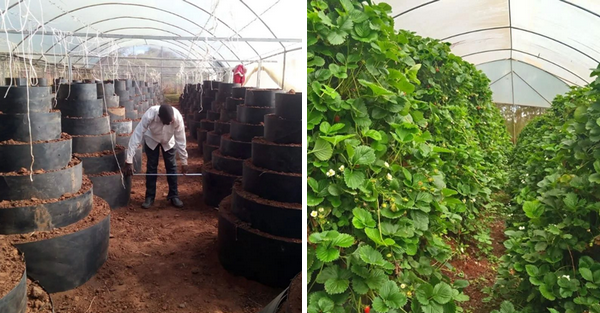
On the left, the gardens just finished the instalment, whereas, on the right, they're blossoming fruits
Jaick Produce is a Kenyan vertical garden supplier. The company has vertical gardens in a closed greenhouse and an open field setup. The majority of customers go for the open field setup to save on costs. The customer base is quite simple: either commercial growers or anyone who is eager to grow berries in their garden.
For the past 7 years, Jaick Produce has installed raised-bed gardens across Milwaukee and beyond. Whereas over the last two years, growers, institutions, and government installations have built approximately 5,000 seven stories vertical gardens filled with healthy, organic soil in front yards and backyards all over the country. This brings the total number of gardens installed by Jaick Produce to over 13,000.
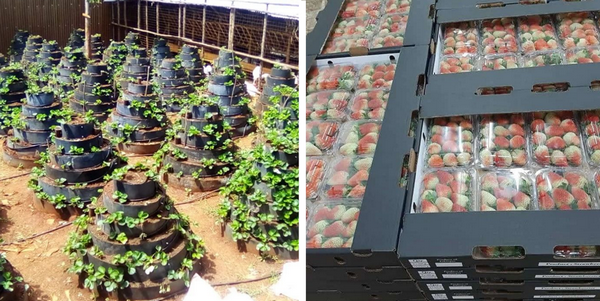
From left to right, a fresh harvest that is ready for sales
Strawberry garden
The size of the vertical garden determines the production. For instance, the typical seven-story vertical garden can hold up to 100 strawberry seedlings. Once it's up and running, growers can harvest three times a week and yield up to five kilos of strawberries monthly.
As the garden has multiple levels, the company notes that it has various advantages over other production systems. Such as higher productivity in a small area, shorter growing times, lower water use, fresh produce is more accessible, low labor cost, and optimal yield.
The majority of Kenyans in urban areas (56%) buy food from supermarkets, whereas the other 35% buy produce from kiosks and groceries, according to a survey released by mobile phone pollster Geopoll in 2015. "We're, therefore, very excited about the potential opportunities vertical farming presents to address food security in that aspect," Benson shared.
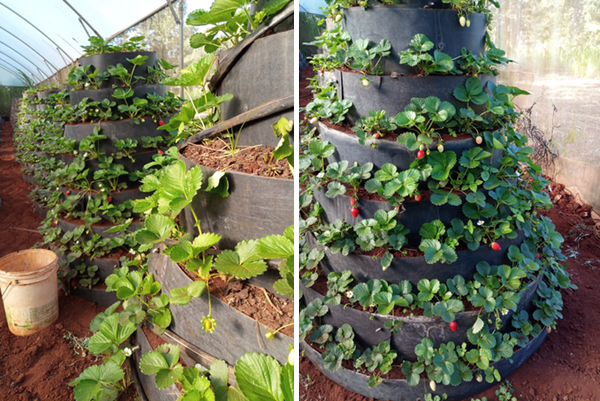
New system introduced
Very soon, Jaick Produce will be rolling out a rotating gardening system with integrated lighting. The hydroponic design will turn the plants upside down and force them to work against gravity, positively affecting the plants. Like others, Jaick Produce claims that it will make the plants stronger, but soon, more details can be shared on that.
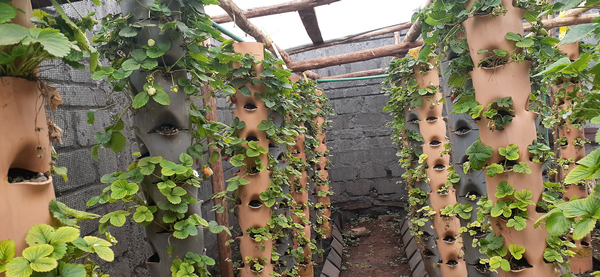
Currently, the company also makes use of the growing showers displayed above
Hands-on the customer
Once a client has laid out the design, the team helps them through with irrigation, fertigation, and the farming process of it. With a tight schedule of calendar tasks, the customer knows exactly what to do and when.
As Benson, the number of gardens depends on the land size of a customer. The gardens, purchased by community members at an affordable price, are installed by a trained team of technicians and filled with organic soil and manure. One acre will allow having 1000 gardens, whereas the math continues from there on.
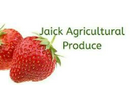 For more information:
For more information:
Jaick Agricultural Produce
+254 723146885/0776534146
jaickagricultural@gmail.com
